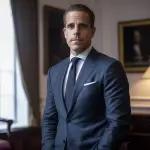Three House hearings scheduled this week could easily be mistaken for a political circus as Congress dives into the security blunders surrounding the recent assassination attempt on Donald Trump. With the Secret Service and FBI under the microscope, the inquiry raises serious questions about how an attacker slipped through the cracks at a campaign rally. After all, if an attempted assassination of a former president doesn’t warrant immediate scrutiny, what does?
The first act in this unfolding drama sees Secret Service Director Kimberly Cheatle on the hot seat, testifying before the House Oversight Committee just over a week following the Butler, Pennsylvania incident. Alongside her, FBI Director Christopher Wray will also appear not once but twice, as Congress looks to piece together exactly how this security fiasco unfolded. The oversight committees seem determined to ensure that the public is left with more answers than just a shoulder shrug and a “mistakes were made.”
Three House hearings this week signal urgency as Congress probes Trump assassination attempt https://t.co/DW48BAFQKC
— John Solomon (@jsolomonReports) July 22, 2024
In a classic case of bureaucratic failure, Cheatle has resisted calls to resign despite her apparent mishandling of security measures. Public statements from Cheatle betray a disarray within the Secret Service, acknowledging that the agency wasn’t prepared for the sort of chaos that erupted. Meanwhile, reactions to earlier denials about resource requests from Trump’s team have mutated into half-hearted admissions that some assistance simply wasn’t provided. The agency’s contradictions raise eyebrows, leaving the public wondering just how ill-equipped it was to protect a high-profile target.
Eyewitness accounts from the rally reveal an alarming lack of situational awareness. Attendees warned authorities about a suspicious individual on a building rooftop, a clear indicator that the internal communication and response strategies may have been as effective as a water-skiing elephant. The would-be assassin, Thomas Crooks, was spotted multiple times throughout the day and was even caught trying to bring a rangefinder—an accessory any hunting enthusiast would recognize as suspicious—through a metal detector. While other rallies generate excitement and enthusiasm, this one turned into a cautionary tale.
Congress has been quick to push for answers, the urgency of which is matched only by their penchant for grandstanding. Both Republican and Democrat leaders have voiced agreement on the need for transparency about what transpired. Following the attempted assassination, it seems the underscoring message is that the federal agencies tasked with protecting the nation’s political figures were anything but ready. As popular sentiment swells for accountability, the hearings are poised to expose not only the instance of failure but perhaps also the systemic issues within the agencies involved.
At the heart of this unfolding debacle, whistleblowers have suggested that many personnel assigned to security at the rally were tragically inexperienced, elevating this security breach from mere negligence to something bordering on criminal mismanagement. Meanwhile, the FBI has entered the fray, claiming the only thing they are prepared to do is investigate the incident while many wonder if they even saw it coming in the first place.
With the entire country watching this spectacle, what we’re left with is the very real concern that the individuals whose job it is to protect political figures are simply incapable of completing the task. As the hearings unfold, the public can only hope that the results don’t read like a bad political thriller where everyone knows the ending but is left with one big question: how could this happen?




